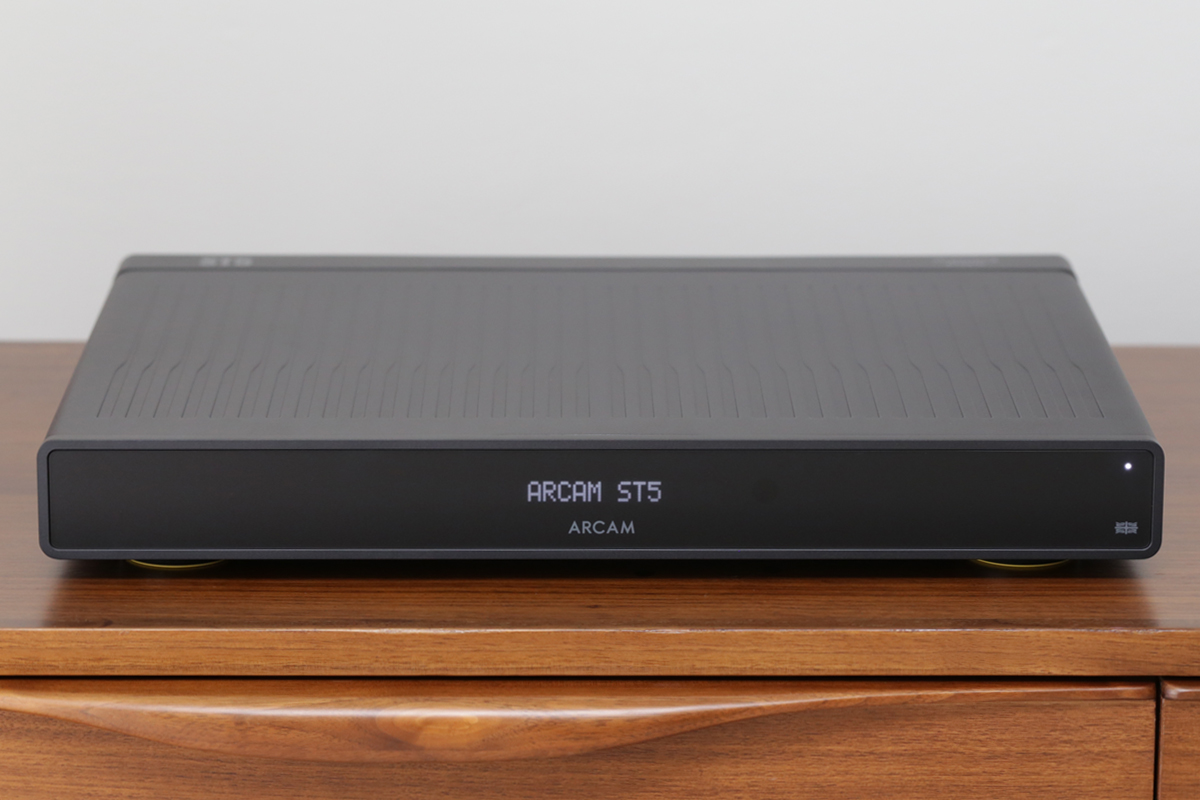
- Written by: Dennis Burger
As I mentioned in my unboxing of Arcam’s new A25 integrated amplifier ($1499, all prices in USD) on SoundStage! Access, I have an incredible hardwired affection for the brand that I feel compelled to mention right up front—not to bias you, dear reader, but simply to lay bare my own biases. Because I can’t help but think that those biases affect the way I view and interact with a product like the A25’s companion piece, the ST5 streamer ($799).
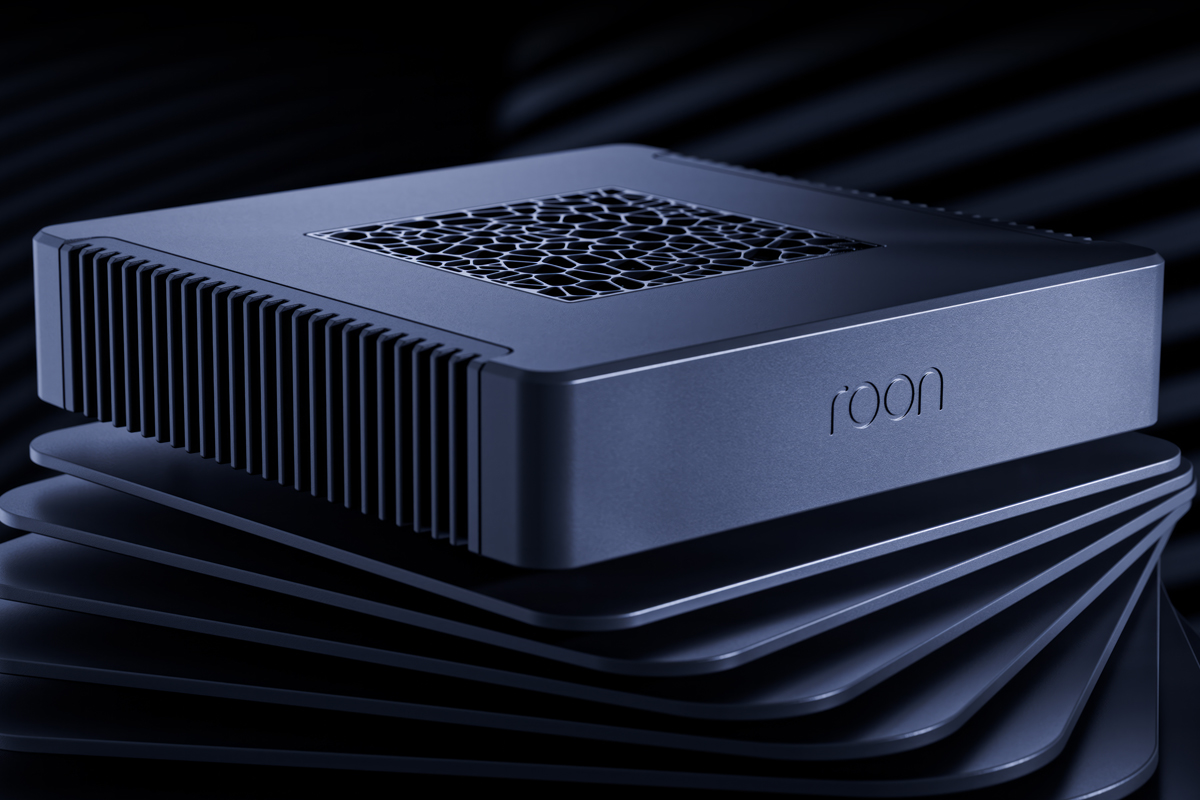
- Written by: Gordon Brockhouse
 Ever since I got into file-based playback in 2011, I’ve consistently used an Apple Mac Mini as a music server—but lately, I’ve changed things up a bit. For the past few months, I’ve been using a Roon Nucleus One to stream music throughout my home and play music through headphones. Priced at $499.99 (all prices in USD), the Nucleus One has one purpose and one purpose only: to run Roon Server software.
Ever since I got into file-based playback in 2011, I’ve consistently used an Apple Mac Mini as a music server—but lately, I’ve changed things up a bit. For the past few months, I’ve been using a Roon Nucleus One to stream music throughout my home and play music through headphones. Priced at $499.99 (all prices in USD), the Nucleus One has one purpose and one purpose only: to run Roon Server software.
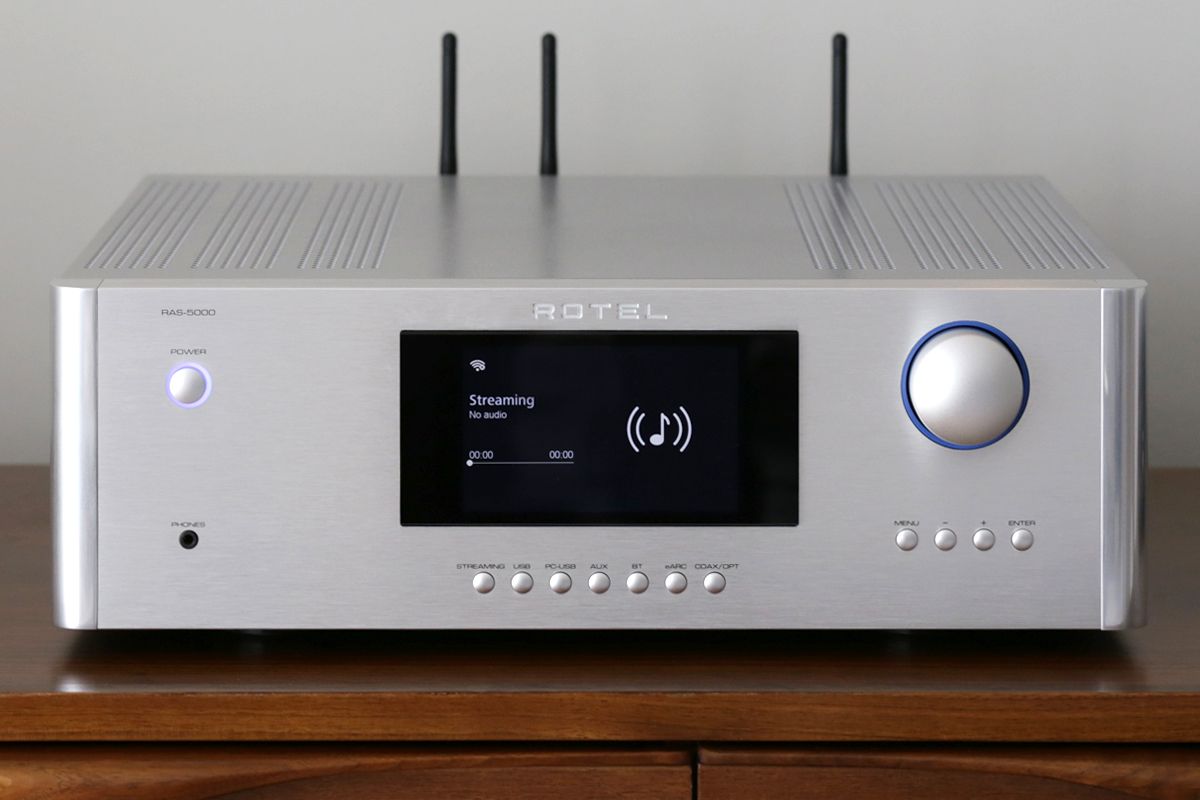
- Written by: George de Sa
Note: for the full suite of measurements from the SoundStage! Audio-Electronics Lab, click this link.
When spring arrives, decluttering becomes a priority for me. Blame it on my OCD, but I want to clear everything out and start afresh. Yet, you can’t get rid of everything—some things are essential. If you’re a music lover, a serious sound system is one of those essentials. Sure, a phone with a Bluetooth speaker can play tunes, but if you really want to feel the music, to have it calm you down or get you dancing, a more capable system is in order. A streaming integrated amplifier like the Rotel RAS-5000 ($2999.99, all prices in USD) coupled with a set of nice loudspeakers might be the ticket. Just connect it to your home network and start streaming. You can also connect external source components, such as a disc player, HDTV, and personal computer.
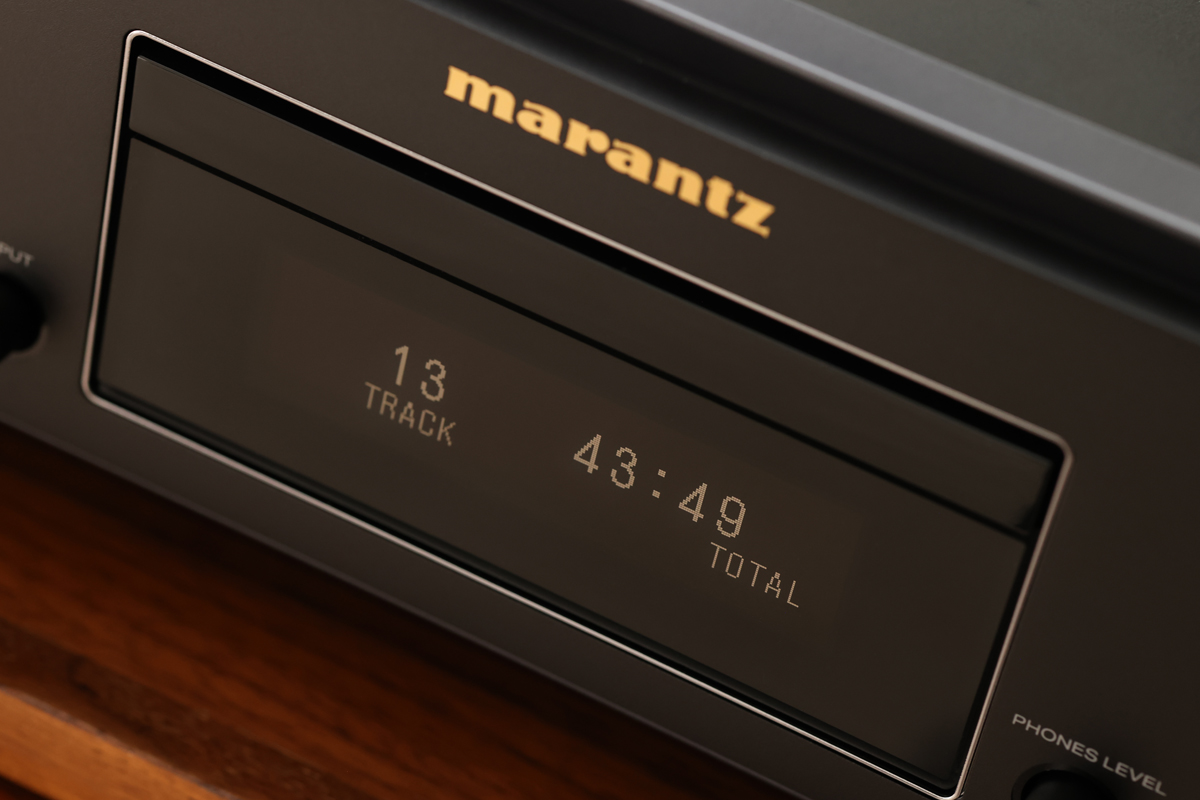
- Written by: Dennis Burger
Note: for the full suite of measurements from the SoundStage! Audio-Electronics Lab, click this link.
 I love it when a hi-fi manufacturer gets into a groove, and Marantz seems to be doing exactly that with its recent two-channel gear. For a while now, the upper end of the company’s two-channel range has been dominated by two-piece solutions, with an all-analog integrated amplifier handling preamplification, source-switching, volume control, and power duties, and a separate disc player/streamer/DAC doing everything else—well, everything except for vinyl and tape playback.
I love it when a hi-fi manufacturer gets into a groove, and Marantz seems to be doing exactly that with its recent two-channel gear. For a while now, the upper end of the company’s two-channel range has been dominated by two-piece solutions, with an all-analog integrated amplifier handling preamplification, source-switching, volume control, and power duties, and a separate disc player/streamer/DAC doing everything else—well, everything except for vinyl and tape playback.
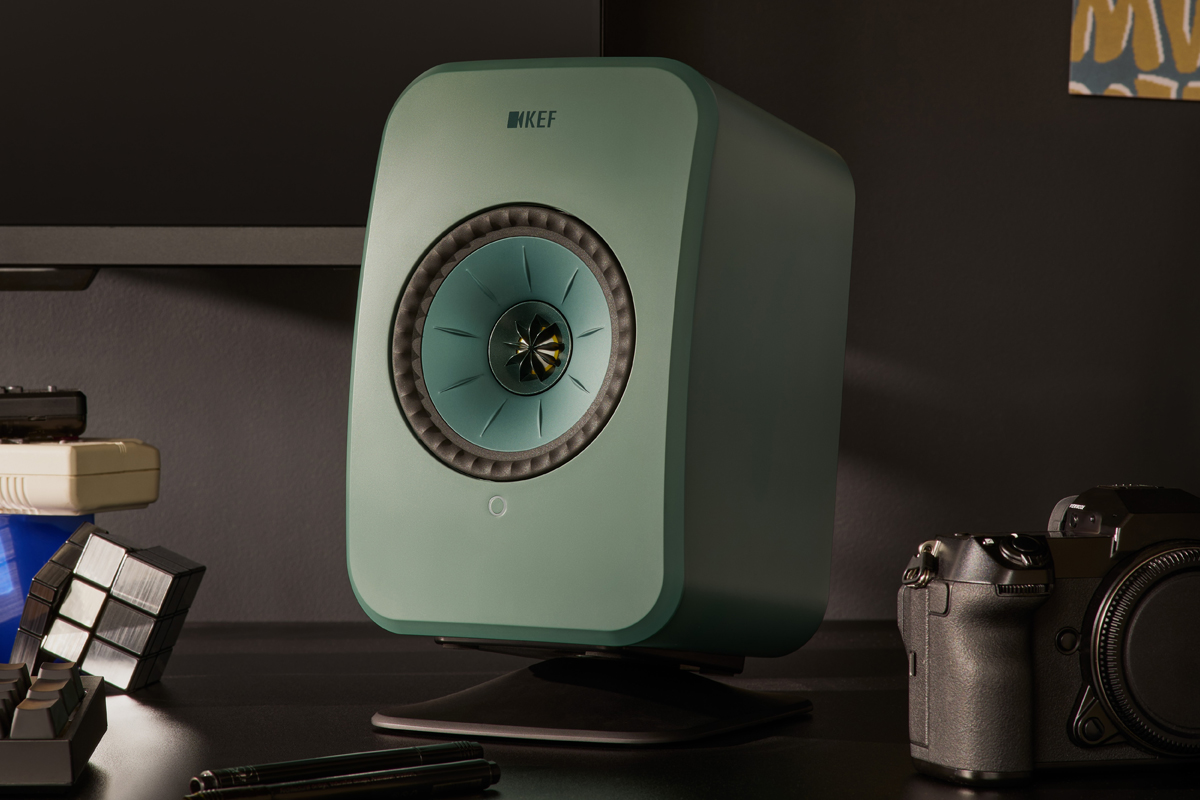
- Written by: Gordon Brockhouse
In a sense, what you’re reading here is a review of two different products—the LSX II LT active speaker system that KEF announced on January 18 of this year, and the LSX II system on which it’s based.
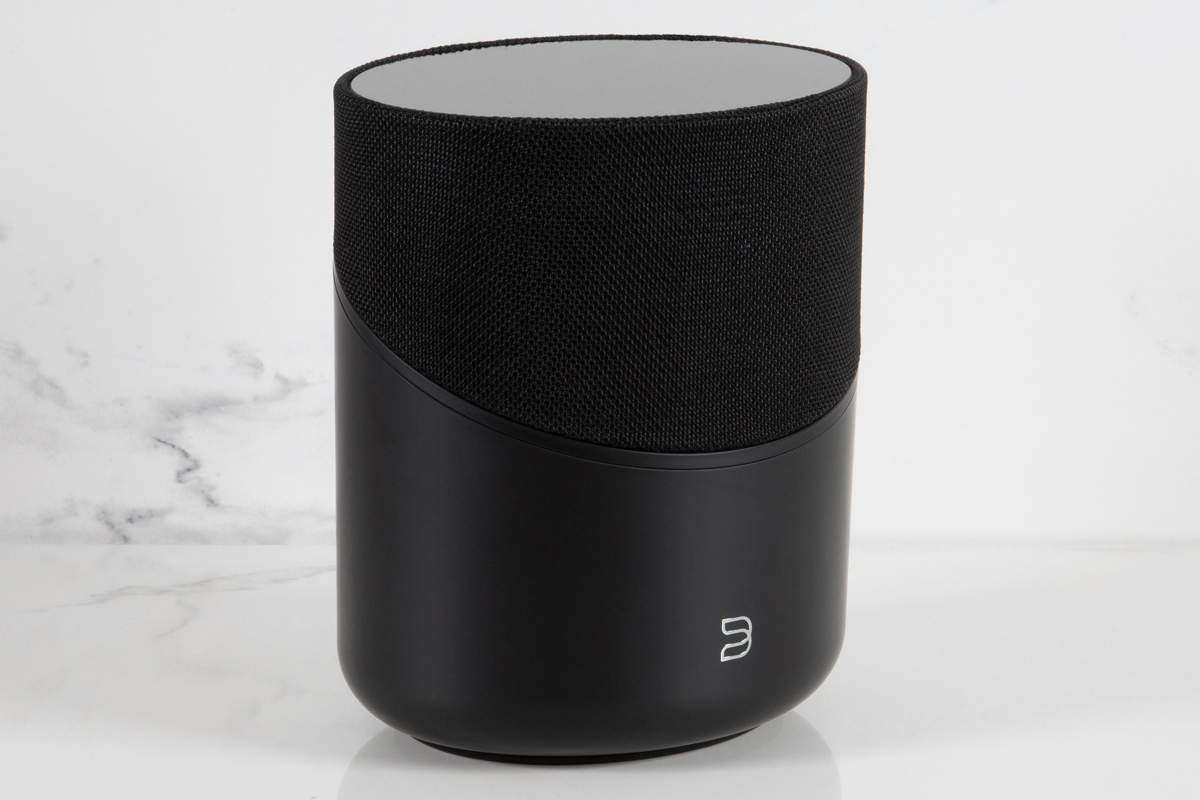
- Written by: Gordon Brockhouse
Every hobby has its killjoys—and audio has more than its share. I’m thinking of purists who insist that there’s only one right way to listen to reproduced music: with your head locked in the sweet spot between a pair of speakers. Members of this party’s fanatical wing may have other bugaboos, too. DSP—not allowed! Lossy compression—intolerable! Listen through a Bluetooth speaker out on the patio? Anathema! Listen through a smart speaker while you prepare dinner? Sacrilege!
Read more: Bluesound Pulse M Streaming Tabletop Music System
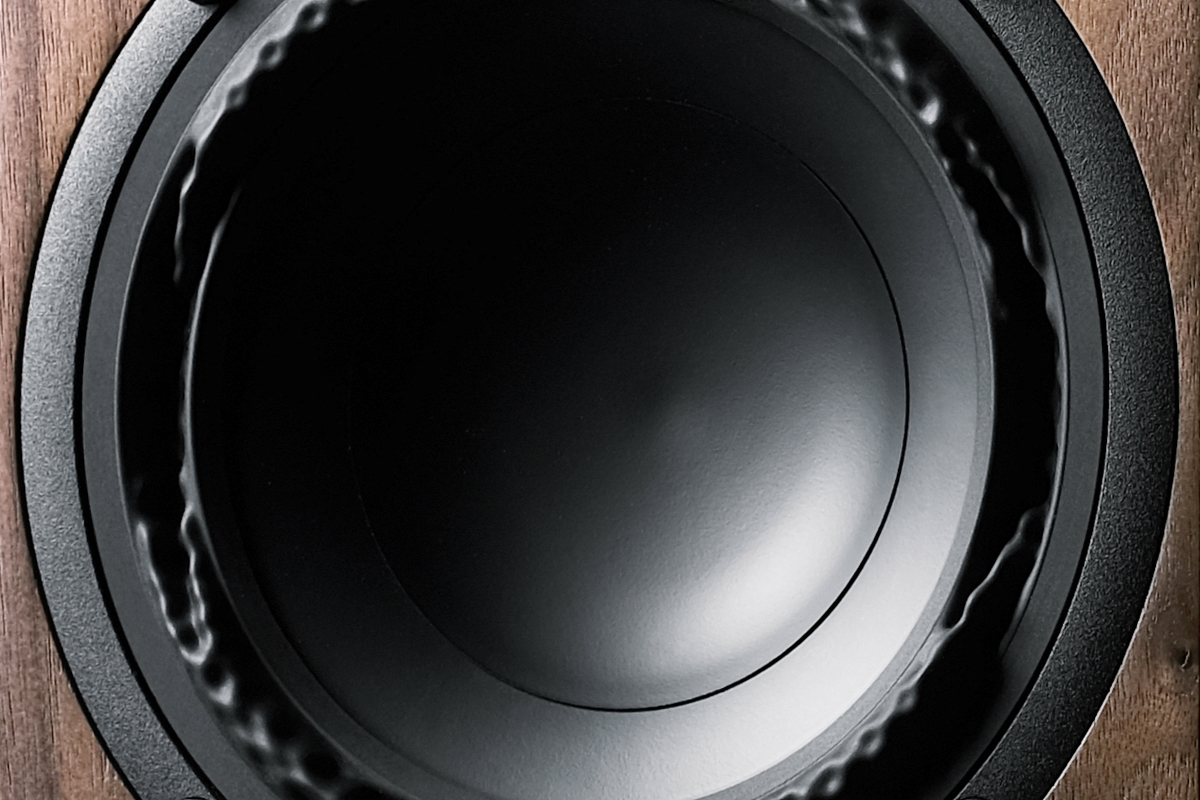
- Written by: Gordon Brockhouse
 In 2023, Denmark’s Buchardt Audio celebrated its tenth anniversary. To mark the occasion, the company released a new active speaker, the Anniversary 10 (A10), which is the subject of this review. In October 2020, I reviewed Buchardt’s A500 active speaker and was wowed by it. The A500 received a Reviewers’ Choice award and then won a 2020 SoundStage! Network Product of the Year award for Innovation in Design. So when Buchardt Audio announced the A10 last summer, I immediately emailed CEO and founder Mads Buchardt to request a pair for review.
In 2023, Denmark’s Buchardt Audio celebrated its tenth anniversary. To mark the occasion, the company released a new active speaker, the Anniversary 10 (A10), which is the subject of this review. In October 2020, I reviewed Buchardt’s A500 active speaker and was wowed by it. The A500 received a Reviewers’ Choice award and then won a 2020 SoundStage! Network Product of the Year award for Innovation in Design. So when Buchardt Audio announced the A10 last summer, I immediately emailed CEO and founder Mads Buchardt to request a pair for review.
Read more: Buchardt Audio Anniversary 10 Active Loudspeaker and Platin Stereo Hub WiSA Transmitter
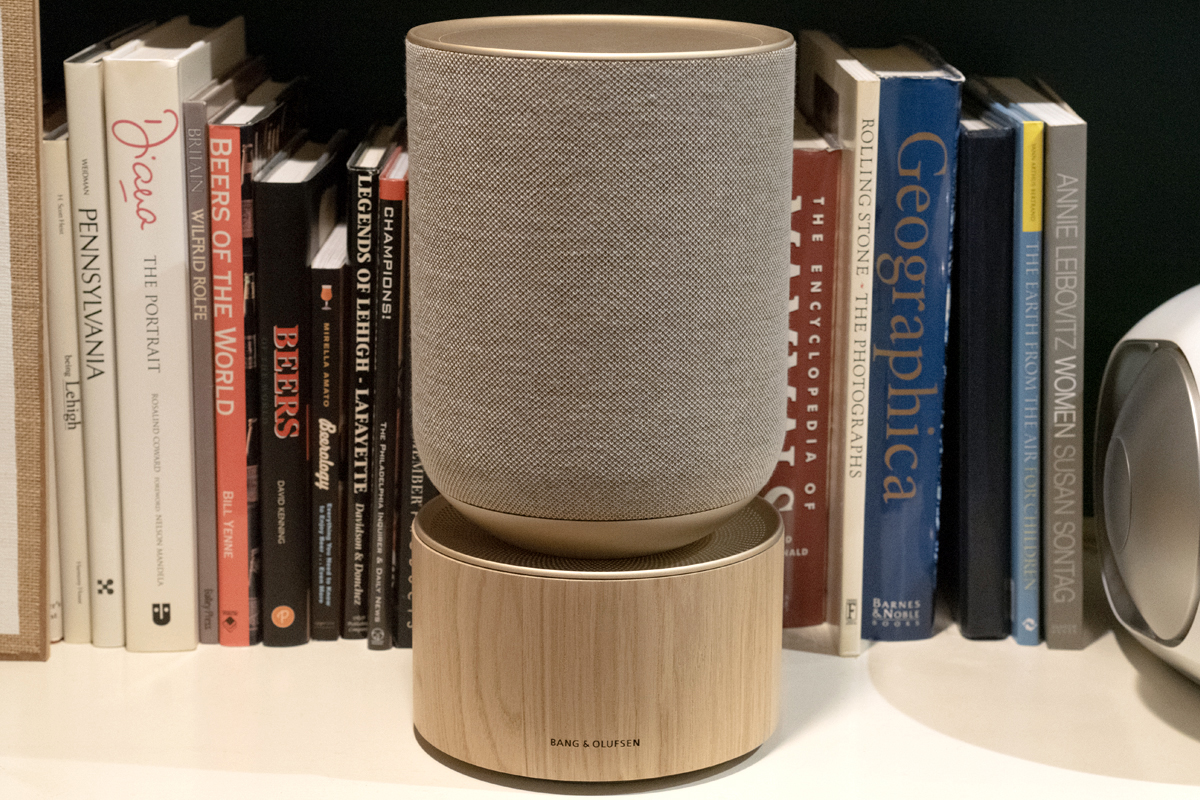
- Written by: Kurt Wetzel
 Back in January 2017, in the first review ever published on SoundStage! Simplifi, Al Griffin wrote, “What makes me think the wireless category has finally, truly arrived are new options from companies such as Dynaudio and Devialet—wireless, powered speakers that provide high-performance alternatives to traditional wired hi-fi systems.” Al was evaluating the Bang & Olufsen Beosound 2 in that review, and he wrote it with serious listeners in mind for whom the sound system—its performance and its continual refinement—is an important part of the experience.
Back in January 2017, in the first review ever published on SoundStage! Simplifi, Al Griffin wrote, “What makes me think the wireless category has finally, truly arrived are new options from companies such as Dynaudio and Devialet—wireless, powered speakers that provide high-performance alternatives to traditional wired hi-fi systems.” Al was evaluating the Bang & Olufsen Beosound 2 in that review, and he wrote it with serious listeners in mind for whom the sound system—its performance and its continual refinement—is an important part of the experience.
Read more: Bang & Olufsen Beosound Balance Active Loudspeaker
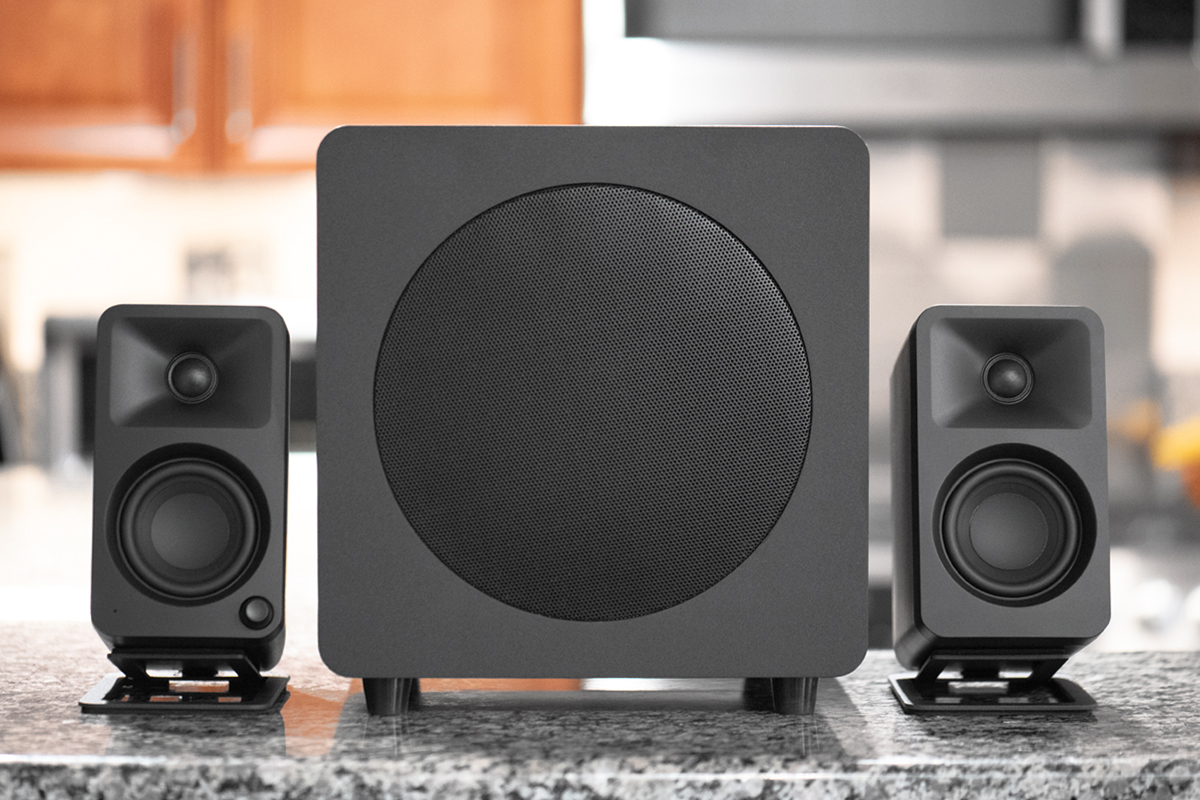
- Written by: Todd Whitesel
Kanto Audio is a Canadian-based consumer electronics company, with headquarters near Vancouver, British Columbia. Its offerings include powered and passive desktop and bookshelf speakers, a powered subwoofer, and three types of speaker stands. For this review, Kanto sent me its latest offering, the ORA Reference desktop speaker system ($349.99, all prices in USD), along with its SUB8 powered subwoofer ($269.99) and two pairs of desktop speaker stands, the S2 and SE2 ($29.99 and $39.99).
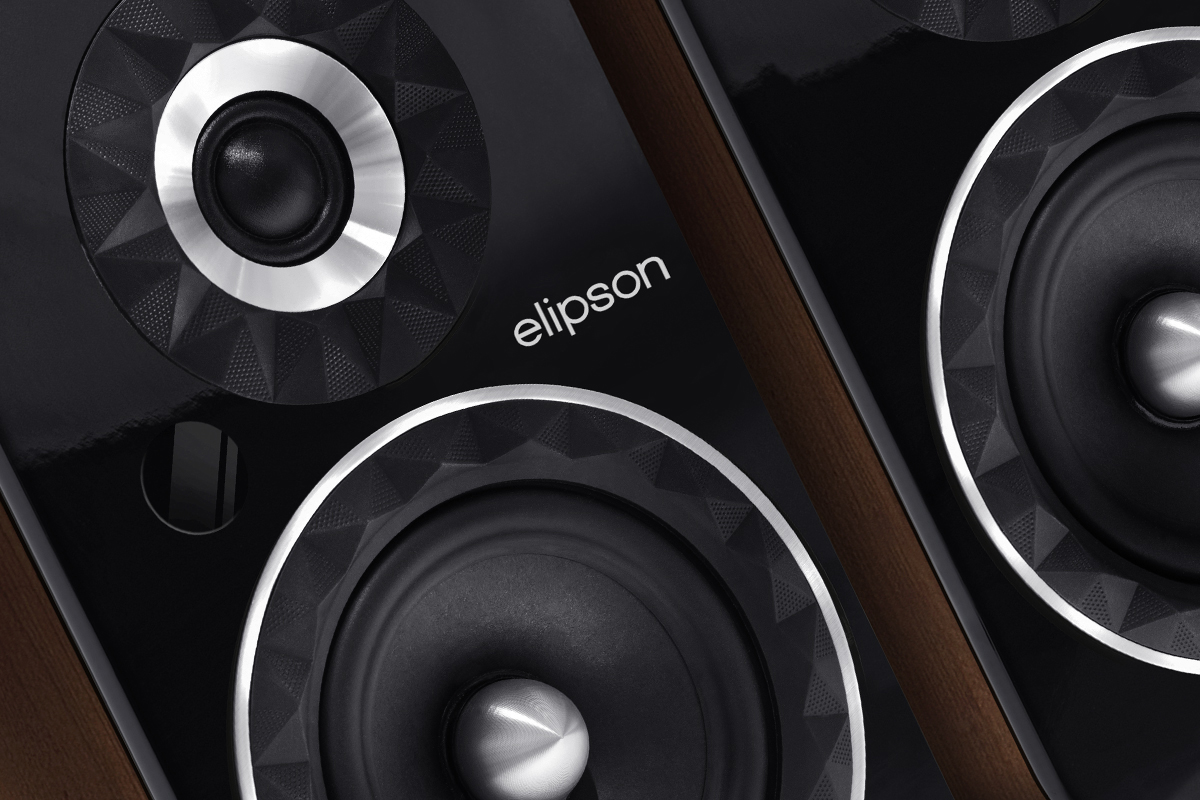
- Written by: Gordon Brockhouse
When I first got into this hobby, a half-century ago, a common entry point was a starter system comprising a base-model stereo receiver, a basic turntable, and a pair of bookshelf speakers. For a system with junky house-brand speakers, you’d pay $250 to $300 (all prices in USD except where noted), or $400-plus for a system with name-brand speakers—say, a pair of Dynaco A25s or EPI 100s.
Read more: Elipson Prestige Facet 6B BT Powered Loudspeaker System
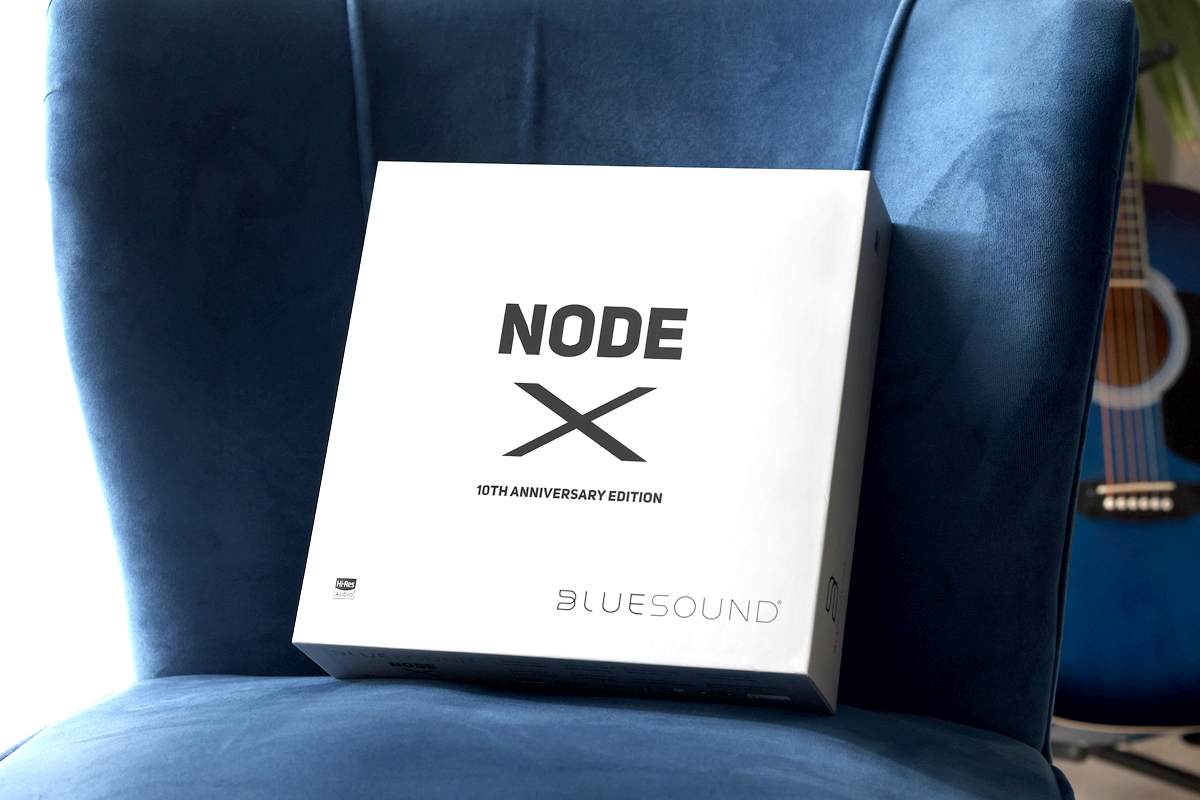
- Written by: Roger Kanno
Note: for the full suite of measurements from the SoundStage! Audio-Electronics Lab, click this link.
 It’s been a couple of years since Bluesound introduced the latest iteration of the company’s award-winning Node streaming device. After being favorably reviewed by Gordon Brockhouse in 2021, it received a SoundStage! Network Product of the Year award in the Exceptional Value category. The Node ($599, all prices USD) is widely considered one of the most fully featured music streamers available at anywhere near its price point. For the brand’s 10th anniversary, Bluesound decided to release a special edition of the Node. Priced at $749, the Node X isn’t meant to replace the current generation of the Node. It will be available for a limited but unspecified period.
It’s been a couple of years since Bluesound introduced the latest iteration of the company’s award-winning Node streaming device. After being favorably reviewed by Gordon Brockhouse in 2021, it received a SoundStage! Network Product of the Year award in the Exceptional Value category. The Node ($599, all prices USD) is widely considered one of the most fully featured music streamers available at anywhere near its price point. For the brand’s 10th anniversary, Bluesound decided to release a special edition of the Node. Priced at $749, the Node X isn’t meant to replace the current generation of the Node. It will be available for a limited but unspecified period.
- System Audio Silverback 1 Active On-Wall Speaker System and Stereo Hub
- Volumio Integro Streaming Integrated Amplifier
- Pro-Ject Audio Systems T2 W Wi-Fi Turntable with Sumiko Rainier Cartridge
- Klipsch The Nines Active Loudspeaker System
- Bluesound Powernode Edge Streaming Integrated Amplifier
- Cambridge Audio Alva TT V2 Turntable
- NAD CS1 Network Music Player
- Rotel S14 Streaming Integrated Amplifier
- Triangle Borea BR03 BT Powered Loudspeaker System
- iFi Audio Neo Stream Streaming DAC-Preamplifier
- PSB Alpha iQ Streaming Active Loudspeaker System
- Elac Debut ConneX DCB41 Powered Loudspeaker System
- Bowers & Wilkins Panorama 3 Soundbar
- JBL 4305P Active Loudspeaker System
- Dynaudio Focus 30 Active Loudspeaker System
- SVS Prime Wireless Pro Active Loudspeaker System
- Totem Acoustic Kin Play Tower Powered Loudspeaker System
- System Audio Legend 7.2 Silverback Active On-Wall Speaker and Stereo Hub
- Roksan Attessa Streaming Integrated Amplifier
- JBL L75ms Integrated Music System
- KEF LS60 Wireless Active Speaker System
- Zidoo Neo S 4K UHD Media Player
- Q Acoustics M20 HD Powered Wireless Music System
- Sonus Faber Omnia Wireless Music System
- Bowers & Wilkins Zeppelin Wireless Speaker
- NAD Masters M10 V2 Streaming Integrated Amplifier
- Mission LX Connect Wireless Active Speakers and Hub
- Linn Series 3 Active Loudspeakers
- Bang & Olufsen Beolab 28 Active Loudspeakers
- KEF KC62 Powered Subwoofer
- NAD C 700 Streaming Integrated Amplifier
- iFi Audio Zen Stream Wi-Fi Streamer
- System Audio Legend 40.2 Silverback Active Loudspeakers and Stereo Hub WiSA Transmitter
- Bluesound Node Streaming DAC-Preamplifier
- Acoustic Energy AE1 Active Loudspeakers
- Q Acoustics Q Active 200 Active Loudspeakers
- Bluesound Powernode Multiroom Streaming Integrated Amplifier
- Edifier Airpulse A300Pro Active Loudspeakers
- KEF LS50 Wireless II Active Loudspeakers
- Bryston BR-20 Streaming Preamplifier-DAC
- HEDD Type 05 MK2 Active Speakers and Bass 08 Subwoofer
- SVS 3000 Micro Subwoofer
- Sony SA-Z1 Active Nearfield Loudspeakers
- Heavenly Soundworks FIVE17 Active Loudspeakers
- Marantz SACD 30n SACD/CD Player and Streaming DAC-Preamp
- DALI Oberon 1 C Active Loudspeakers and Sound Hub Wireless Transmitter
- PSB Alpha AM3 Powered Loudspeakers
- iFi Audio Neo iDSD DAC-Preamp-Headphone Amplifier
- Bluesound Pulse Sub+ Wireless Subwoofer
- PSB Alpha AM5 Powered Loudspeakers
- SVS Prime Wireless SoundBase Streaming Integrated Amplifier
- Focal Solo6 Be Active Loudspeakers
- Buchardt Audio A500 Active Loudspeakers and Stereo Hub WiSA Transmitter
- Klipsch The Fives Active Loudspeakers
- Triangle Elara LN01A Powered Loudspeakers
- Volumio Primo Community Edition and Hi-Fi Edition Streaming DACs
- System Audio Legend 5 Silverback Active Loudspeakers and Stereo Hub WiSA Transmitter
- Andover Audio Model-One Turntable Music System
- Elac Alchemy DDP-2 Streaming DAC-Preamp
- Focal Shape 65 Analog Active Loudspeakers
- HEDD Type 07 Analog Active Loudspeakers
- exaSound Audio Design Delta Music Server M100
- Bryston BDA-3.14 Streaming DAC-Preamplifier
- iFi Audio Pro iDSD Streaming DAC-Preamp-Headphone Amplifier
- Sennheiser Ambeo Soundbar
- DALI Rubicon 6 C Hybrid Active Loudspeakers
- Pro-Ject Audio Systems Pre Box RS2 Digital DAC-Preamp-Headphone Amp
- Klipsch RW-51M Wireless Powered Loudspeakers
- iFi Audio Aurora Wireless Music System
- Naim Audio Mu-so Qb 2nd Generation Wireless Music System
- Cambridge Audio CXA81 Integrated Amplifier-DAC
- Hegel Music Systems H120 Integrated Amplifier-DAC
- DALI Katch One Soundbar
- NAD Classic C 658 BluOS Streaming DAC
- Kanto Audio Tuk Powered Loudspeakers
- Lumin T2 Network Music Player
- Naim Audio ND5 XS 2 Network Music Player
- Elac Navis ARF-51 Active Loudspeakers
- Devialet Phantom Reactor 900 Active Loudspeakers
- PMC result6 Active Loudspeakers
- Bowers & Wilkins Formation Duo Active Loudspeakers
- Naim Audio Mu-so 2nd Generation Wireless Music System
- McIntosh Laboratory MTI100 Integrated Turntable
- Yamaha WXA-50 MusicCast Streaming Amplifier
- NAD Masters M10 BluOS Streaming Integrated Amplifier
- Primare SC15 Prisma Streaming DAC-Preamp
- Naim Uniti Core CD Ripper/Music Server
- Elac Navis ARB-51 Active Loudspeakers
- Bluesound Pulse 2i Wireless Speaker
- SVS Prime Wireless Active Speakers
- Totem Acoustic Kin Play Powered Speakers
- KEF LSX Active Loudspeakers
- Bluesound Vault 2i CD Ripper-Server-Streamer
- Pro-Ject Audio Systems Stream Box S2 Ultra Music Streamer
- Kii Audio Three DSP-Controlled Active Loudspeakers
- Aurender S5W Battery-Powered Wireless Active Loudspeakers
- Cambridge Audio Yoyo (L) Wireless Speaker
- DALI Callisto 2 C Active Speaker System
- Kanto SYD Bluetooth Speaker
- LG G7 ThinQ Smartphone
- Pro-Ject Audio Systems Juke Box E Turntable-Integrated Amplifier
- NAD D 3020 V2 Bluetooth Integrated Amplifier-DAC
- Polk Assist Wi-Fi Smart Speaker
- MartinLogan Unison Wireless Preamplifier
- Dynaudio Music 7 Wi-Fi Speaker
- Musical Fidelity M6 Encore 225 Music System
- Cocktail Audio X35 Music System
- Peachtree Audio decco125 Sky Integrated Amplifier-DAC
- Technics Ottava f SC-C70 Music System
- JBL Link 500 Wi-Fi Speaker
- Trinnov Amethyst DAC-Preamplifier-Processor
- Control4 Triad One Streaming Amplifier
- Elac Discovery Z3 Wi-Fi Speaker
- Klipsch Heritage Wireless Three Wi-Fi Speaker
- Paradigm PW 300 Wi-Fi Loudspeakers
- Thiel Audio Aurora Home Wi-Fi Speaker
- Hegel Music Systems H190 DAC-Integrated Amplifier
- Yamaha R-N803 Network Stereo Receiver
- Onkyo TX-8270 Network Stereo Receiver
- Dynaudio Focus 20 XD Active Loudspeakers
- Riva Audio Festival Wi-Fi Speaker
- Naim Audio Uniti Atom Wireless Streaming DAC-Integrated Amplifier
- NAD Masters Series M50.2 Digital Music Player
- Bryston BryFi BW-1 Wi-Fi Speaker
- Arcam rPlay Music Streamer
- Auralic Polaris Wireless Streaming DAC-Integrated Amplifier
- Simaudio Moon Neo ACE DAC-Streamer-Integrated Amplifier
- NAD C 368 DAC-Integrated Amplifier
- Lumin M1 Integrated Amplifier-Network Music Player
- Arcam Solo Music DAC-Integrated Amplifier-Universal Player
- McIntosh Laboratory RS100 Wi-Fi Loudspeakers
- Hegel Music Systems Röst Integrated Amplifier
- Naim Audio Mu-so Qb Wi-Fi Speaker
- Bang & Olufsen BeoSound 2 Wi-Fi Speaker
SoundStage! Simplifi is part of
All contents available on this website are copyrighted by SoundStage!® and Schneider Publishing Inc., unless otherwise noted. All rights reserved.
This site was designed by RocketTheme, Karen Fanas, and The SoundStage! Network.
To contact us, please e-mail info@soundstagenetwork.com



